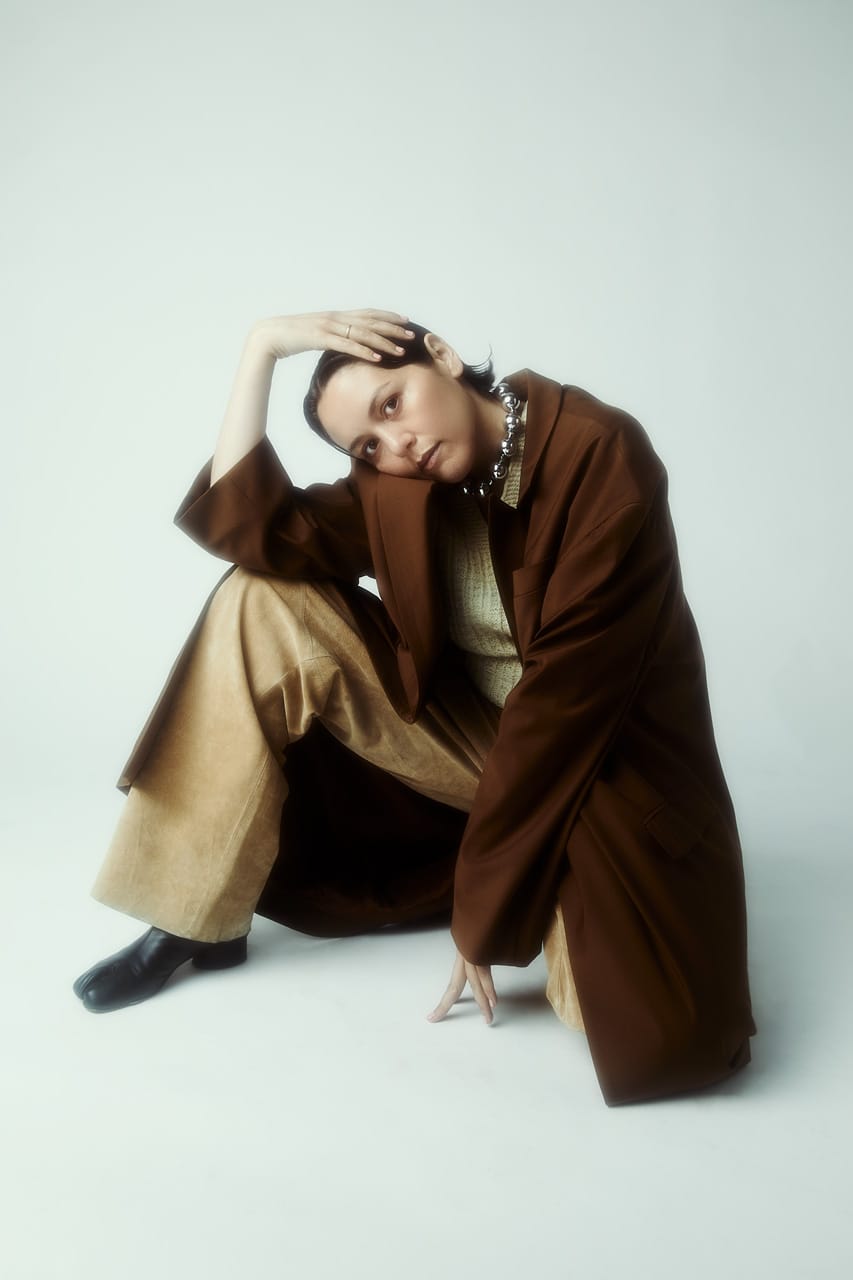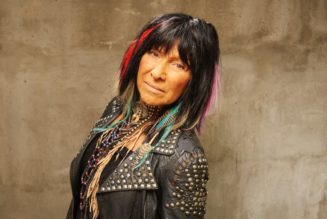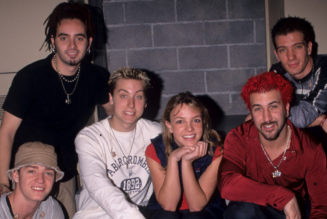Logic1000 has been a professional musician for a decade, but she’s never released a full-length album. Although that’s far from standard practice, the DJ has never adhered to timelines apart from self-imposed ones. That extends tor her personal life too – three months after giving birth, she was touring the world, baby in tow.
Back in 2019, Logic1000, who was born Samantha Poulter and went by DJ Logic at the time, got her first taste of virality after Four Tet played her namesake dance track “DJ Logic Please Forgive Me.” In the five years since that viral moment, she rebranded to Logic1000, relocated from Melbourne to Berlin and released two EPs plus a handful of singles. It wasn’t until the birth of her first child that the DJ felt provoked to put out her debut album. After wrapping up the festival circuit, she took a year-long hiatus from touring and got to work on recording new music at home. While she considered at one point that she had enough singles to pull together another EP, Logic1000 had an “overwhelming sense” to keep making music and exploring her sound postpartum.
Mother, the result of her postpartum experimentations, may be inspired by the experiences of motherhood but it isn’t a concept album. Songs such as the Rochelle Jordan-featuring “Promises” present Logic1000’s pulsating beats and digital glitchiness but there’s a greater story to be told. Out on March 22, Mother draws from sub-genres across the house spectrum. The soulful “Self to Blame” draws on garage, whereas the funky “Grown On Me” is reminiscent of ‘80s deep house. Dipping in and out of genres as nimbly as she weaves in motifs from her personal life, Logic1000’s Mother debut explores the duality of identities – mother, partner, producer and individual.
True to its title, Mother was inspired by the birth of your daughter. What made you realize the time had come for a full-length project after 10 years of making music professionally?
I felt like I’d said everything I needed to say in EP form, and once I had given birth I had this overwhelming sense that I needed to create something bigger and very beautiful. I had this surge of energy where I thought, “If I can create life, surely there are other great things I can do.”
Sonically speaking, how do you translate the feelings of being a mother into music?
It’s hard to pinpoint how motherhood has impacted my sound but I’ve been more connected to womanhood since giving birth, so I had the urge to work with female artists for Mother. I feel like women are inherently sweet, so inevitably there’s a very sweet tone to the album.
Tom McAlister, your partner and the father of your child, also contributed writing and production. What does the process of collaboration between the two of you look like?
Tom is half of the Logic project. When we’re in the studio, we’ll chat about the vibe and mood of the track we want to make. There will often be specific references that will inspire us. In terms of the actual production, we just spitball. I throw in ideas and so does he. Part of the reason we work so well together is that Tom is an Ableton wiz.
Mother seems to draw inspiration from mid-2000s club and R&B sounds. Are there any particular artists or records that you listened to while making the album?
House music and R&B have been a constant in our lives, but funnily enough, we had a lot of amapiano [South African house music] playing in our home during that period. I remember that my baby also really loved listening to Sade while we were writing the album so that was on repeat.
It’s interesting to think about how we experience house music outside of the club. How does your music-creation approach differ between live sets and an album for streaming services?
The beautiful thing about house music is that it fits into so many different contexts. It can literally be morning music or late-night club music. It’s so versatile. I don’t really think about how the music will go down while I’m making it. All I care about is whether it excited me (and Tom). I think if I were concerned about streaming or live, I would never get anything done. I would be too in my head.
“Every time I have a win, big or small, I’m shook.”
Many fans discovered your work during quarantine. Considering that’s the antithesis of being in a club, were you surprised by the breakthrough?
I’m constantly surprised at everything that comes my way. I never knew much about the industry, what was possible, where I could take the project etc. Every time I have a win, big or small, I’m shook. It’s to the point where I actually have a gratitude journal where I write down everything I am grateful for in my life.
The LP also touches on themes ranging from mental health to advocating for accessibility in the the dance music industry. From a DJ’s perspective, what are some of the changes you want to see in the club scene?
I think it would be so nice if there were more day parties in Berlin. I find clubbing hours here to be quite inaccessible for parents and people who don’t fit into the stereotypical clubbing culture. Being in a club at 3 a.m. when you might not want to drink or take drugs isn’t really so much fun – well, for me anyway (unless I’m DJing).
If it’s a daytime or afternoon thing, the energy is different. Maybe a little less intoxicated and joyous? I do think a lot of joy happens at 3 a.m. too. It just hits a little differently.










